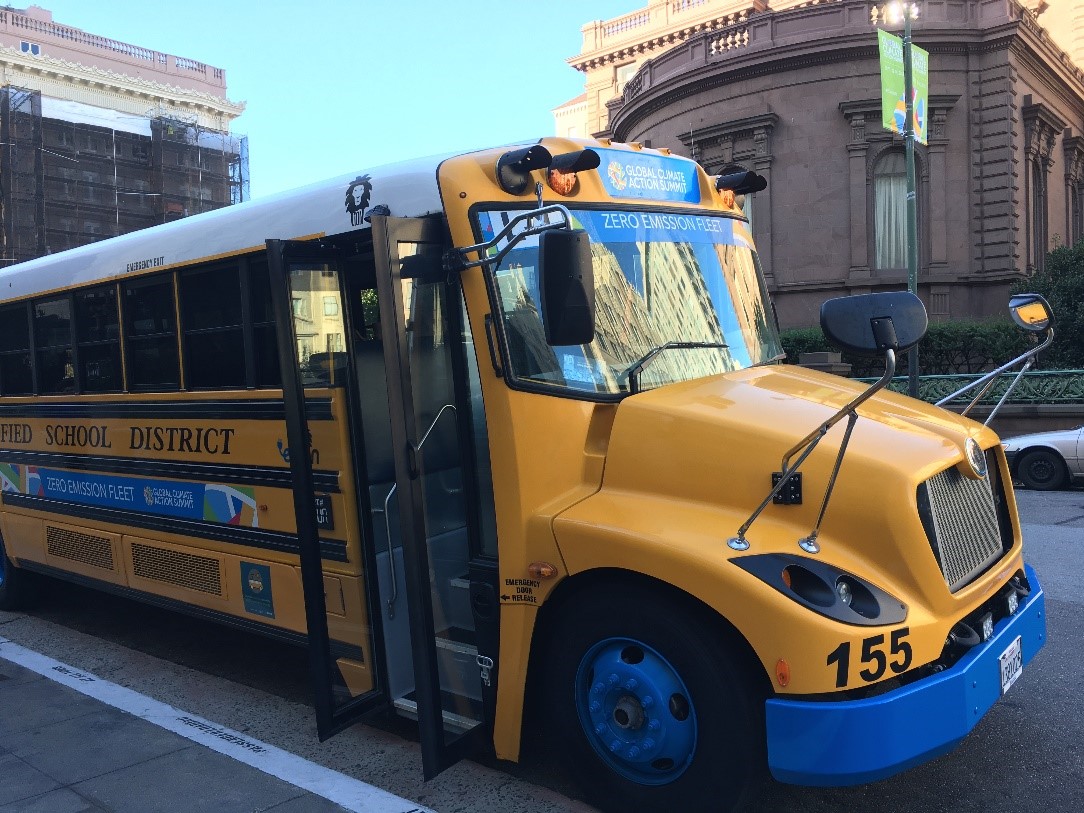
Colorado cities showcase benefits of municipal fleet electrification
Cities and towns across Colorado are adapting their fleets in new and exciting ways, creating healthier communities while conserving critical resources.
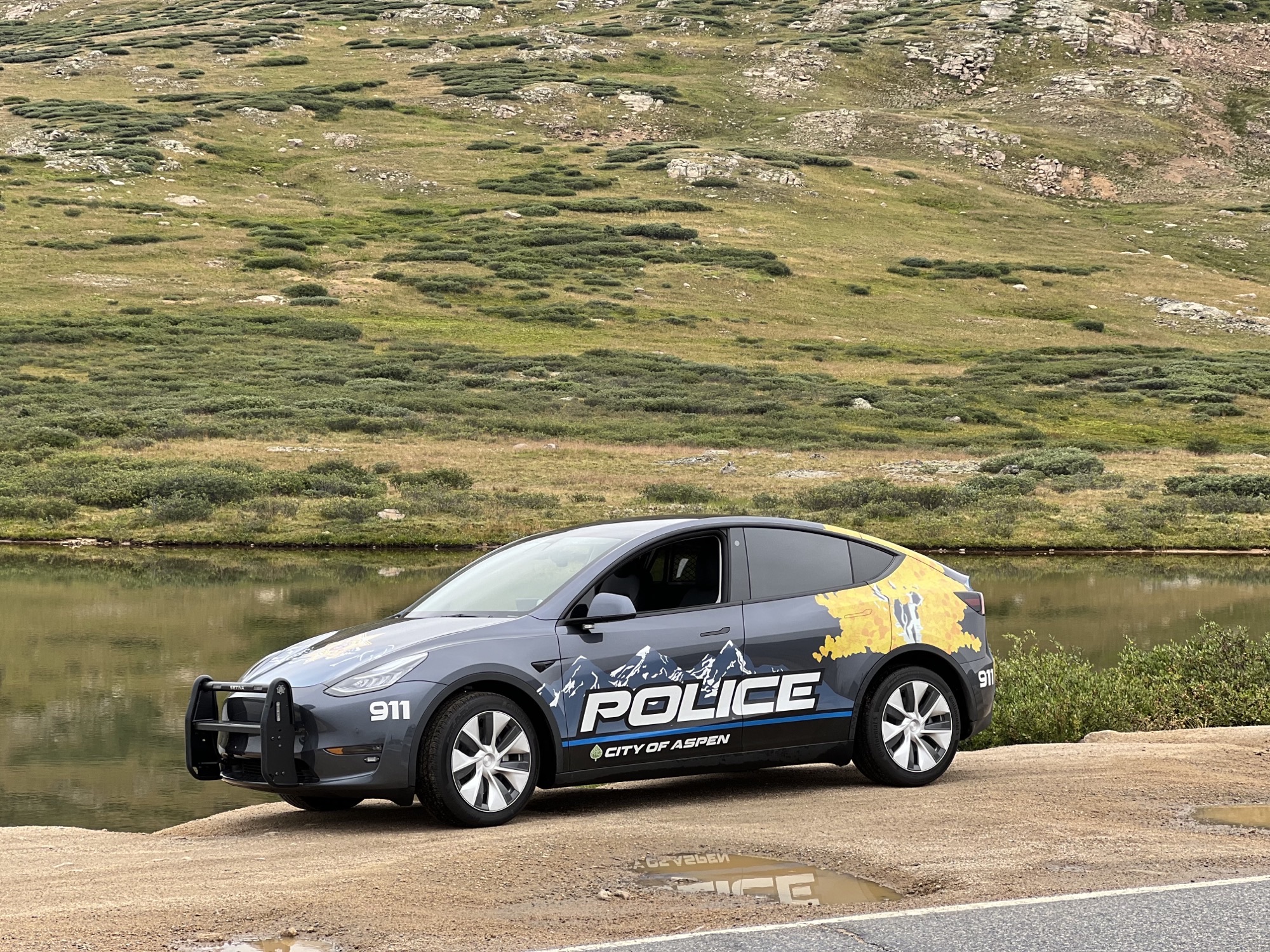
As electric vehicles sales reach record numbers acorss the state, there are many reasons to celebrate the progress being made towards a zero-emission transportation future. With transportation cited as the leading source of greenhouse gas emissions in the state’s Greenhouse Gas Emissions Pollution ReductionRoadmap from January 2021, the need to accelerate the transition away from gas-powered vehicles towards zero and low-emission alternatives has become urgent.
While sales of passenger EVs topped 17% in the last quarter of 2023, cities and counties across the state are also capitalizing on the many benefits of electric vehicles for their communities. Not only are EVs helping cities and counties reach their climate targets, but emerging data shows they are also saving taxpayers money on fuel and maintenance costs.
Fleet managers are taking advantage of state and federal tax incentives and grant programs designed to lower the upfront costs of new EVs, resulting in a variety of new electric vehicles taking over new and different tasks. Notably, local governments can utilize the state’s Clean Fleet Vehicle and Technology Grant Program, which provides incentives to support the adoption of clean fleet vehicles and technology and the federal Commercial Clean Vehicle Credit (which passed as part of the Inflation Reduction Act) offers savings of up to $7,500 per light-duty EV.
CoPIRG’s tour of some of Colorado’s leading cities on electrification show us how cities are adapting their fleets in new and exciting ways, creating healthier communities while conserving critical resources.
CITY OF ASPEN
Tim Karfs, Sustainability Programs Administrator, Climate Action Office
Aspen is a leader statewide in electrifying their police department, with 5 Model Y Tesla’s currently deployed on the force, and a sixth on the way. The police department also has a new Ford F-150 lightning being outfitted for patrol and arriving for duty within the next few months. All police vehicles have performed well in cold conditions, noted Tim Karfs, Sustainability Programs Administrator of Aspen’s Climate Action Office.
“Where there have been good simple replacements, we’ve made a lot of impact,” noted Karfs. “So that’s most notably seen in the Aspen Police Department – right now, one-third of the Aspen PD fleet is electric, so that’s really exciting and we are learning a lot from that experience.”
Additionally, new data being collected by the city shows significant cost savings around fuel and maintenance for the electric vehicles compared to their gas-powered counterparts.
We have one year of data with the police patrol Model Y and saw a 78% cost savings in fuel and maintenance from that vehicle compared to the one it replaced, which was a Ford Explorer.Tim Karfs
Sustainability Programs Administrator, City of Aspen Climate Action Office

As the city moves towards its goal of 100% zero-emission transportation, Karfs noted that they were looking for opportunities to use state and federal incentives to continue to build out charging infrastructure, while continuing to replace as many current fleet vehicles with electric options as possible.
Aspen has long been a pioneer in the state around policies to combat climate change and improve air quality. In 2017, the Aspen City Council adopted the 2017 Electric Vehicle Readiness Plan which aimed to accelerate the adoption of EVs through education, installing more charging stations, and leading by example with the City’s own fleet. In 2020, the city adopted new science-based climate targets aiming to reduce greenhouse gas (ghg) emissions by 63% in 2030 and 100% in 2050; EV adoption is a key strategy to achieve the emission reduction goals in Aspen’s Climate Action Plan.
In 2022, the city created a Fleet Emissions Reduction Roadmap, which provides a roadmap for the city to transition its municipal fleet towards 100% zero-emission vehicles by 2050. While the current fleet is less than 10% electric now, according to Karfs, an increasing number of roles are now being taken over by electric alternatives.
Watch the full interview with Tim below, where he dives into the challenges and opportunities that lie ahead for Aspen.
CoPIRG Municipal EV Tour: Aspen Interview with Tim Karfs
CoPIRG public health advocate Alex Simon interviews Tim Karfs of Aspen’s Climate Action Office on transitioning the city’s fleet to electric vehicles.
Town of Avon
Craig Wilmers, Fleet Manager
Nestled in the mountain, Avon may be a small Colorado town but its commitment to municipal electrification is setting the bar statewide. The town set greenhouse gas emission reduction goals in the 2016 Climate Action Plan, targeting transportation as one of the key sectors to address (the plan was updated in 2020).
“The state of Colorado has emissions goals, Eagle County has their emission goals as well, and Avon has 100% intentions of meeting those, but we also want to exceed those, be the first ones there, the ones leading the charge if you will - setting the bar high and doing the best we can for our economy and the country.Craig Wilmers
Town of Avon Fleet Manager

Light-duty vehicles have been the easiest to replace, and the Town has purchased five all-electric All Wheel Drive (AWD) Volkswagen ID.4’s and two all electric Ford F-150s, a 13% increase in EVs as a percentage of fleet vehicles.
Avon is striving to be the first town in Eagle County with a 100% hybrid fleet for the police department. The town recently deployed 2 new Ford F-150 hybrids for a total of ten hybrid vehicles on the force.
Avon's electric fleet vehicles (2023)
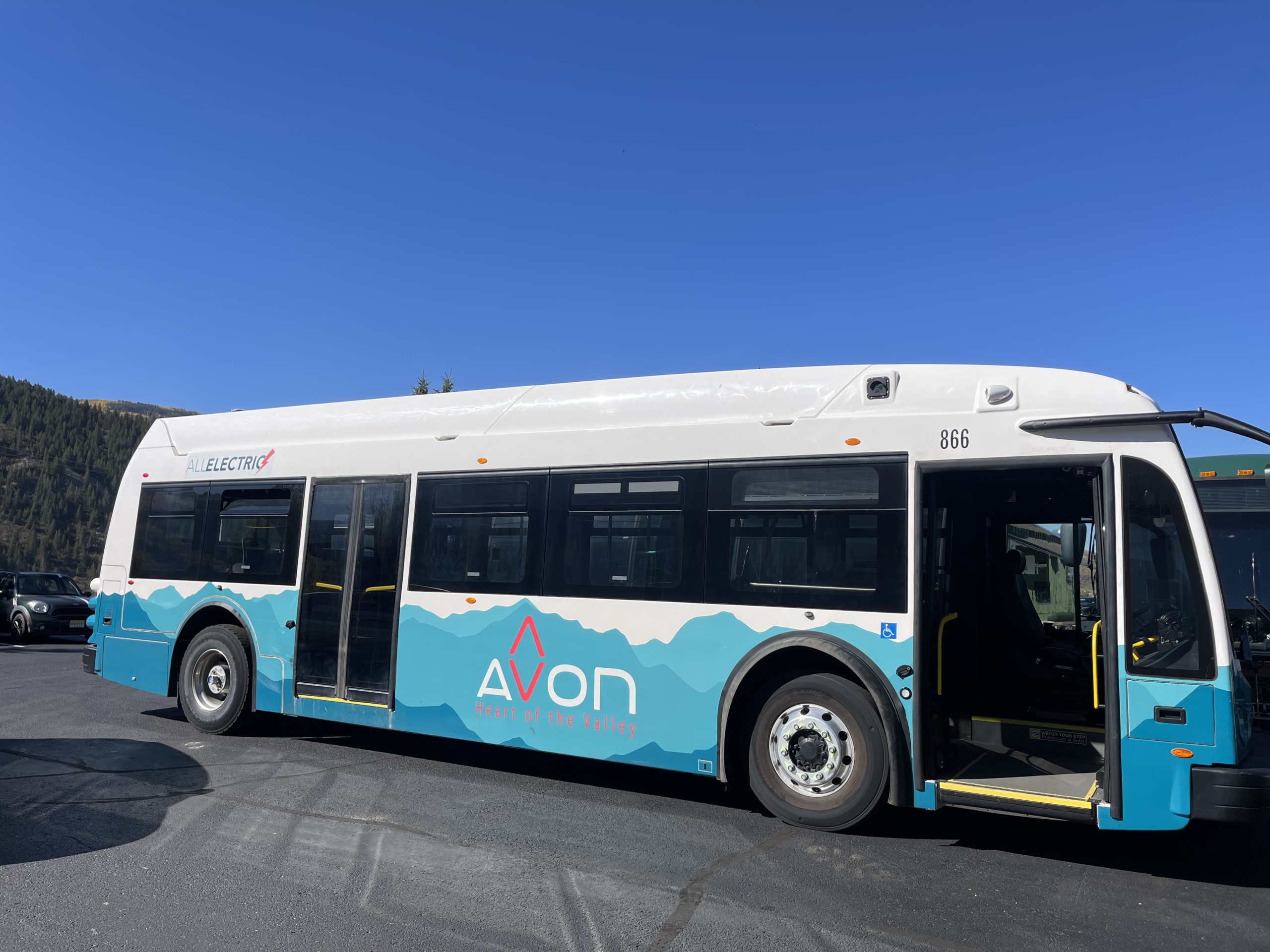
One of two electric buses currently operated by the Town of Avon.
Photo by Alexandra Simon | Used by permission
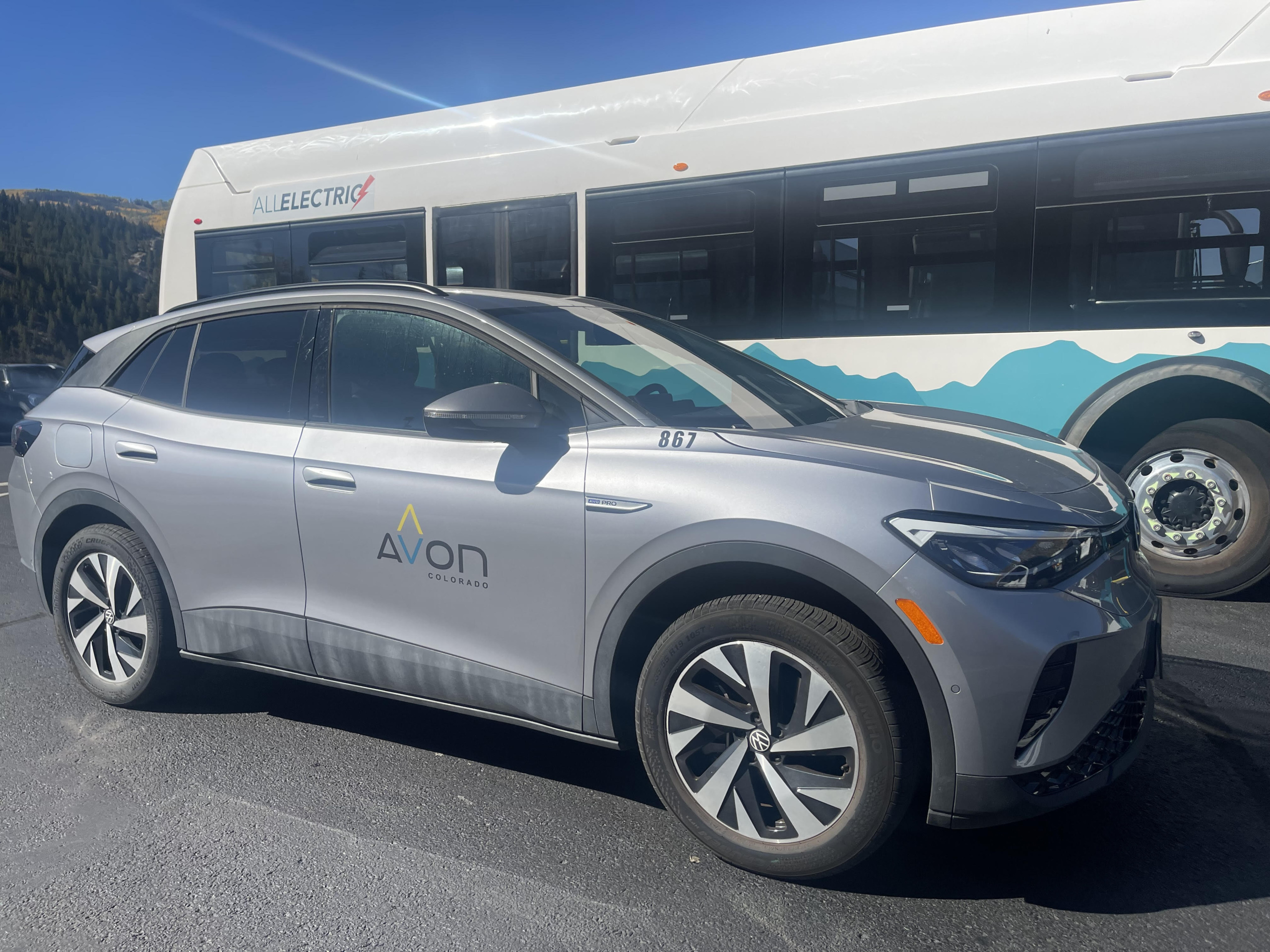
An all-electric Volkswagen ID.4 is used by city council members on town business.
Photo by Alexandra Simon | Used by permission
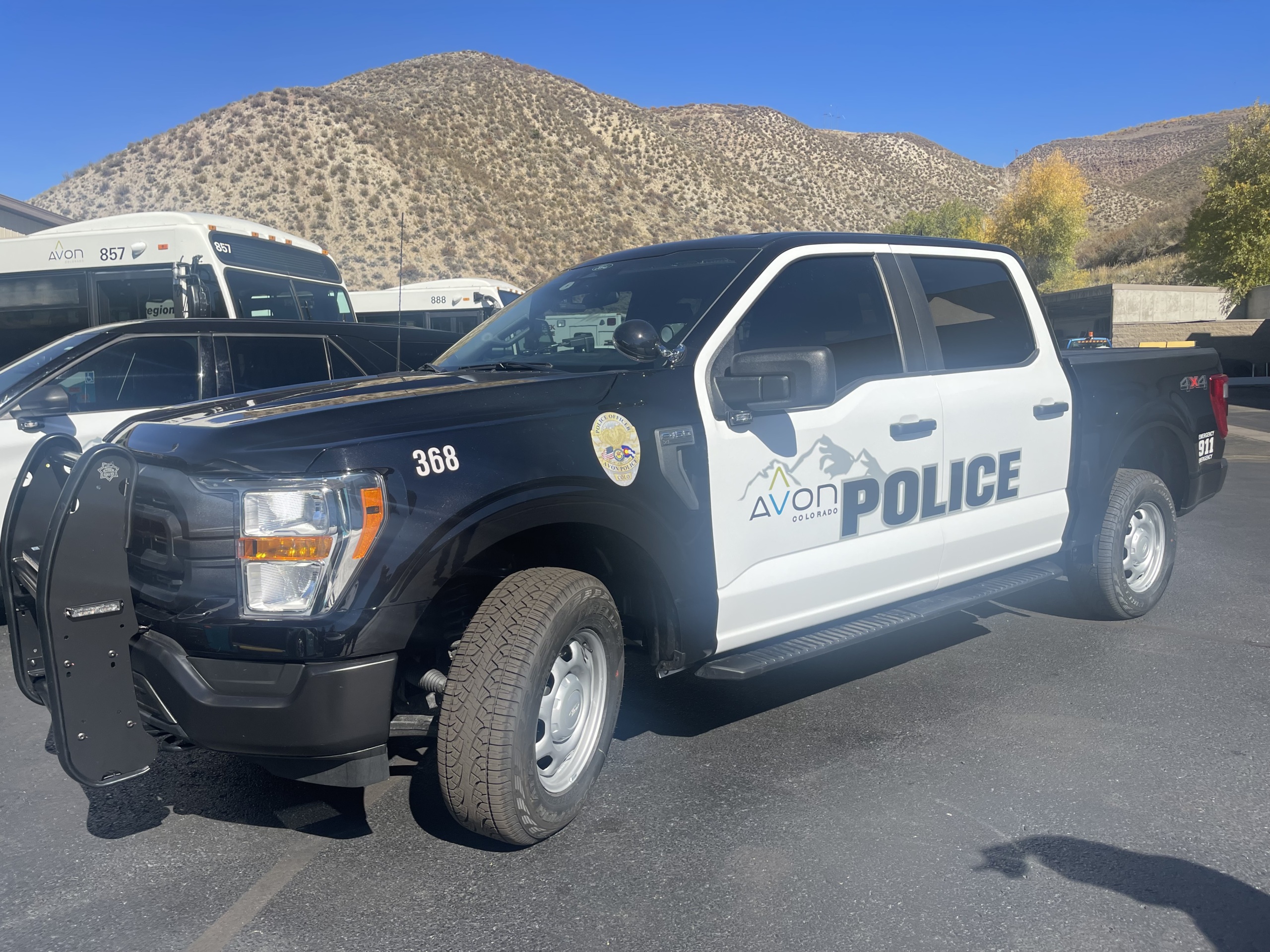
The police department is aiming to be 100% hybrid, and this is one of two new Ford F-150 hybrids the department is using.
Photo by Alexandra Simon | Used by permission
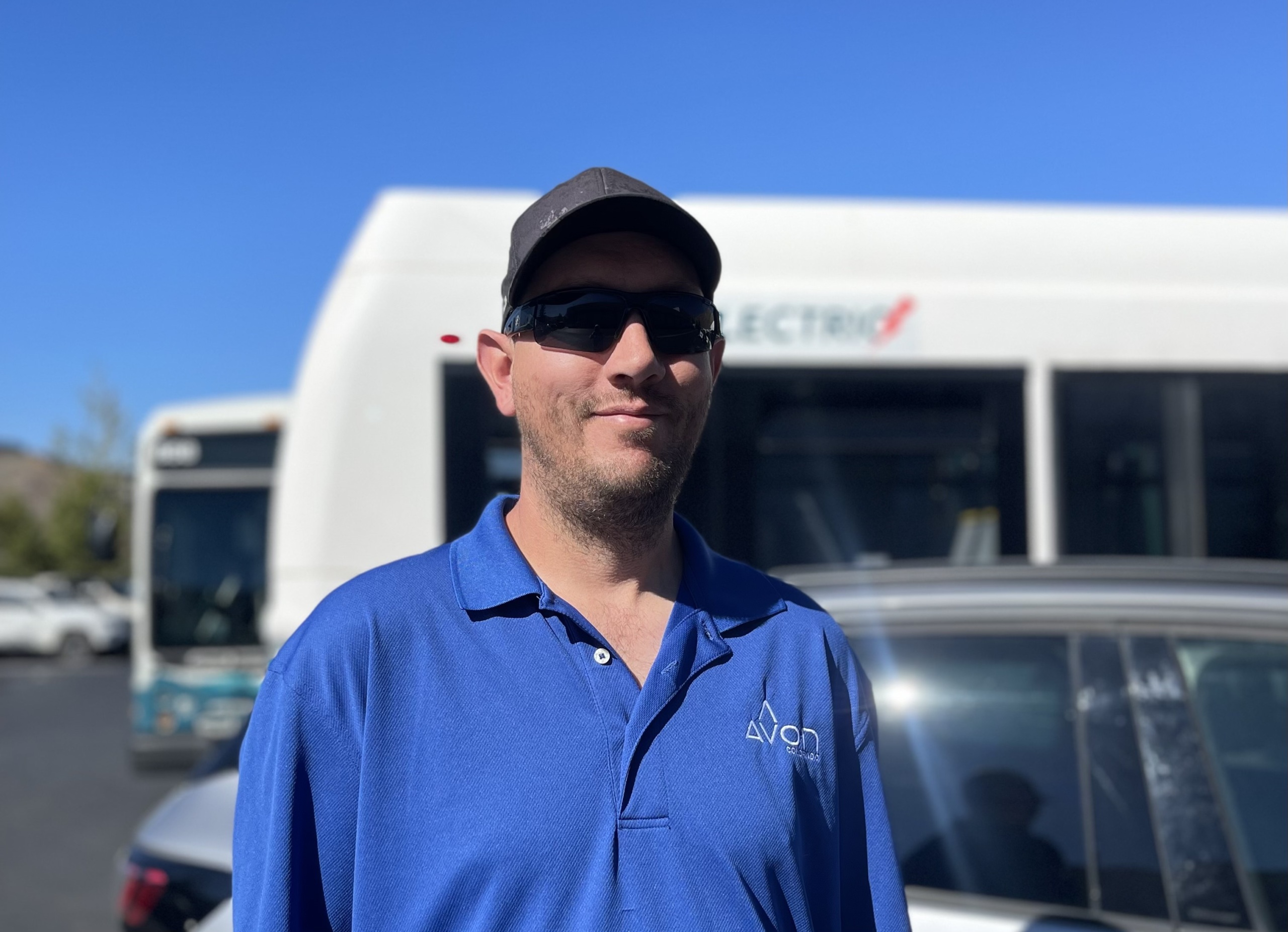
Craig Wilmers, Town of Avon Fleet Manager is helping electrify the town's fleet.
Photo by Alexandra Simon | Used by permission
1of 4
City of Boulder
Tristano Greco, Fleet Manager
As one of the first cities in the state to make a GoEV City commitment to a 100% zero-emission transportation future, Boulder has long been a leader in electrification. Currently, the city has about 42 electric vehicles (EVs), with 26 more on order and expected within the next 6 months, bringing the expected total to 68.
We are trying to get in line with electrifying as many vehicles as we can, and still being able to provide the city with the daily things the government has to do to help maintain infrastructure.Tristano Greco
Fleet Manager, City of Boulder

A chat with Boulder’s Fleet Manager, Tristano Greco, showed several new EVs the city is using, including 2 new Ford F-150 Lightnings. These were part of 5 Lightnings that arrived last June, and are performing a range of duties for the city with departments like Fleet, Open Space, Parks and Recreation, Utilities, and Building Services. The vehicles travel anywhere from 20 to 200 miles per day, and take around 12-14 hours to fully charge at the fleet management depot using a level 2 charger.
Greco highlighted several benefits of the new Lightnings, including one pedal drive (also known as regenerative braking), which slows the car down once the accelerator is released and uses that energy to recharge the brake. This allows the car to be more stable on snow and ice, because it can slow down without the brake, noted Greco, which is also aided by the car’s lower center of gravity. With more power, heavier weight, and less noise, the vehicles are superior for towing and “don’t move all over the road like you do in a regular F150,” said Greco.
Watch the full interview with Tristano:
CoPIRG Municipal EV Tour: Boulder Interview
CoPIRG advocate Alex Simon talks to Boulder’s fleet manager Tristano Greco about opportunities and challenges around fleet electrification, and what’s next for Boulder.
Next up for the municipal leader’s fleet electrification includes some RAV4 Primes and Chevy Bolts coming in on the light-duty front, and thanks to a grant from CDPHE, the city has ordered a Rosenbauer Electric Fire Truck. Greco noted the active role the fire department played in pushing that grant through, as well as the role of the city’s grant writing team. Next steps include an electric heavy-duty street sweeper on the way, marking some of the first pieces of the fleet’s heavy-duty equipment to go electric.
That lack of EV replacements for heavy-duty vehicles remains the hardest part of reaching the goal of a 100% zero-emission fleet. As Greco noted, “We’re trying everything we can, the light-duty stuff more and more keep coming and that will keep opportunities coming. It’s the medium and heavy duty realm that’s sort of starting to ramp up, but it’s a lot further behind and it’s also extremely expensive.”
Boulder's electric fleet vehicles (2023)
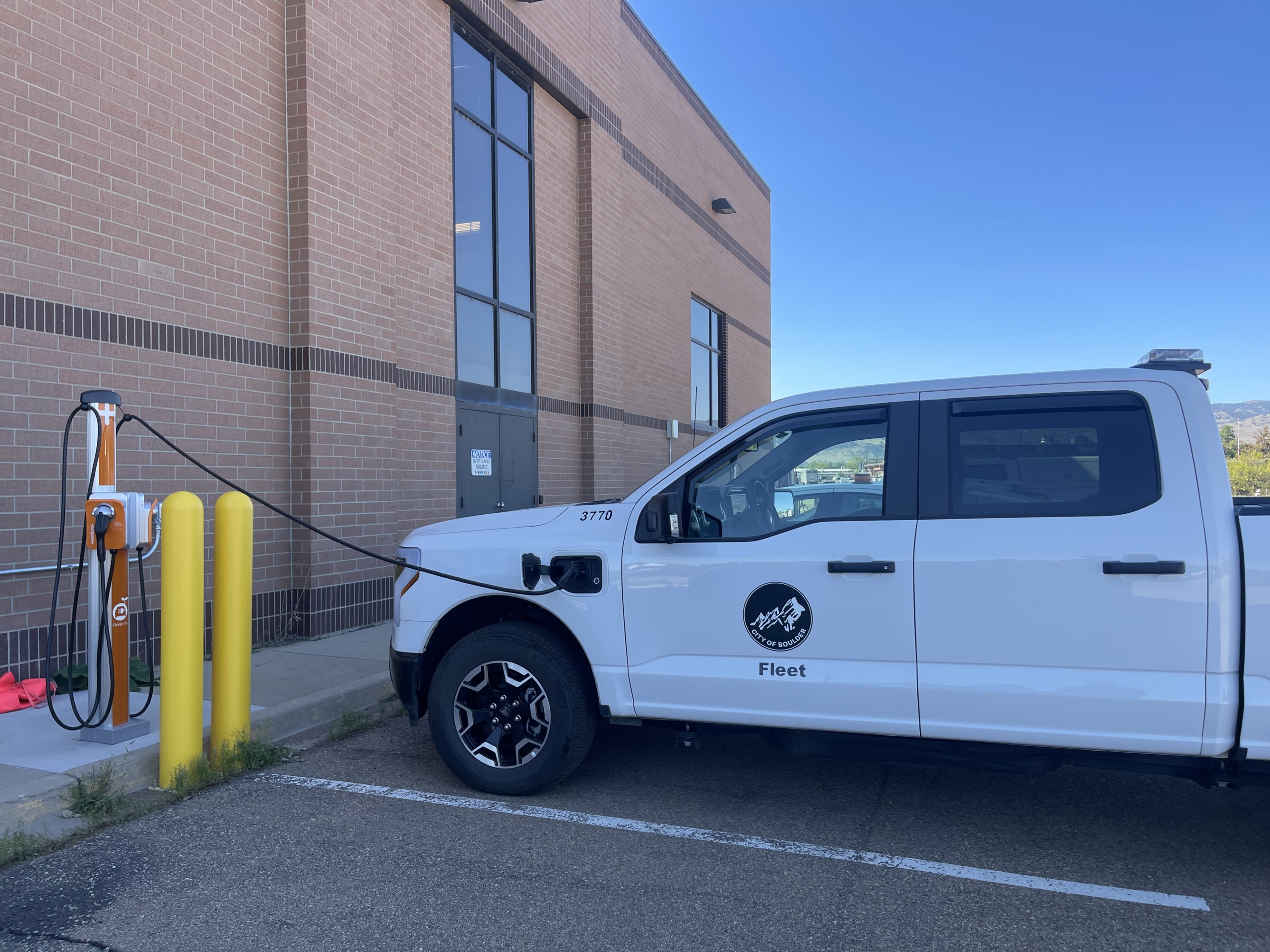
A new all-electric Ford F-150 Lightning charges at the fleet depot, one of 5 currently active on the fleet.
Photo by Alexandra Simon | Used by permission
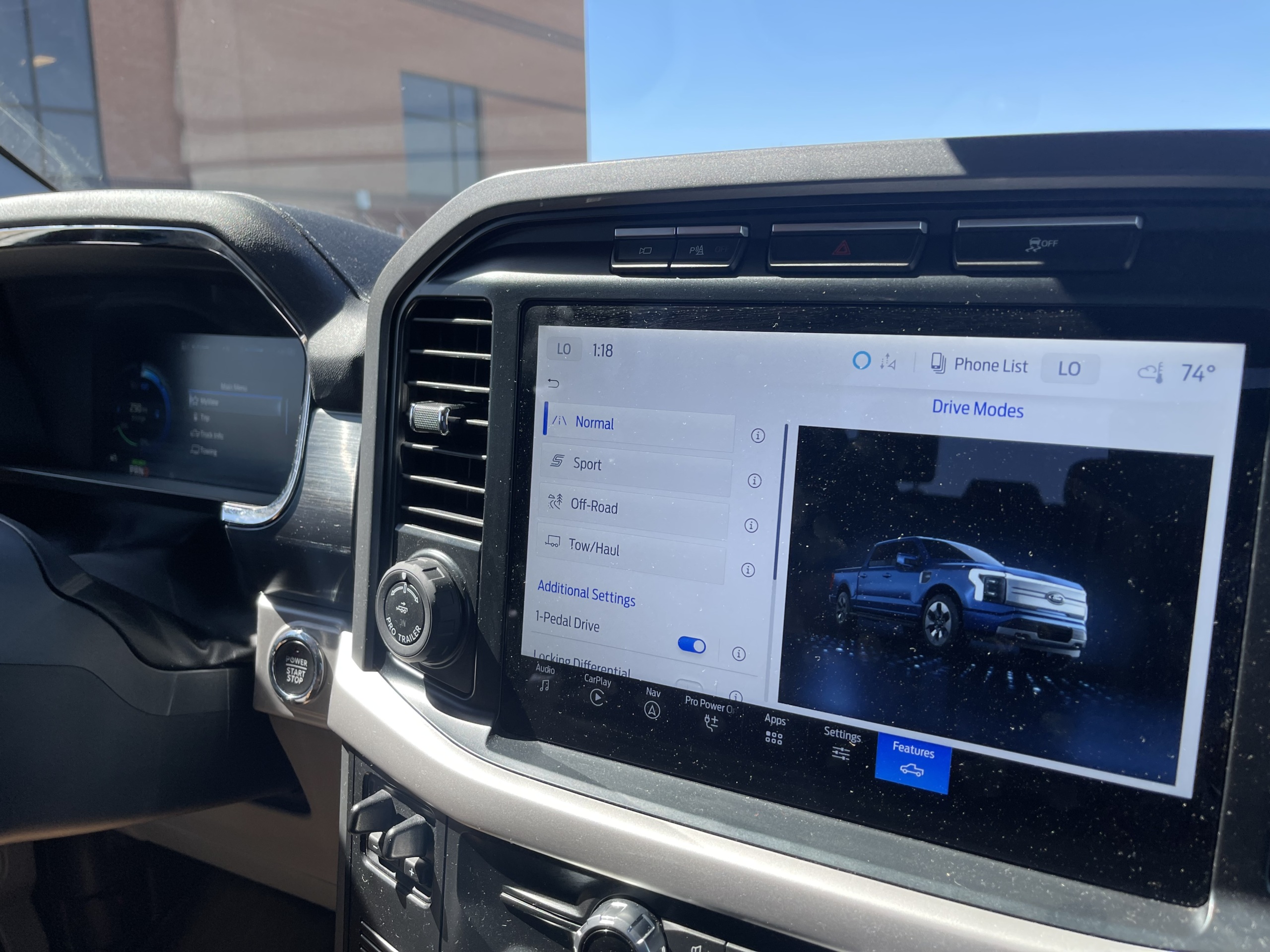
The new all electric Ford F-150 Lightnings have features like one pedal drive and a tow/haul drive mode that make them effective at municipal tasks.
Photo by Alexandra Simon | Used by permission

CoPIRG advocate Alex Simon takes a ride with Tristano Greco in Boulder's new all electric Ford Lightning.
Photo by Alexandra Simon | Used by permission
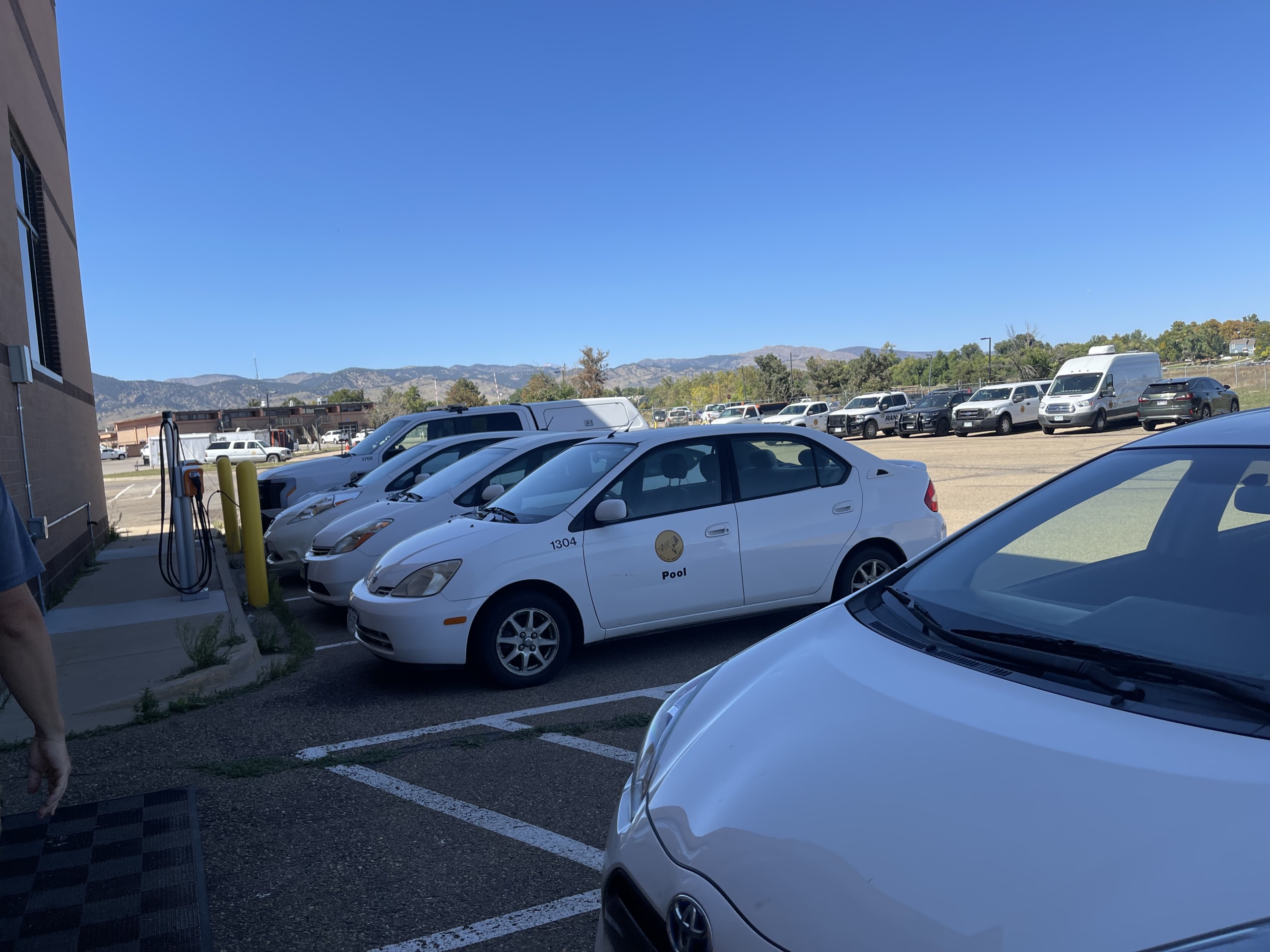
Boulder's electric vehicles charge up at the fleet depot.
Photo by Alexandra Simon | Used by permission

Tristano Greco, Fleet Manager for the City of Boulder, has been helping electrify the municipal fleet.
Photo by Alexandra Simon | Used by permission
1of 5
City of Longmont
Cash Johns, Fleet Manager
Longmont is another GoEV City, setting a short-term goal of hitting 25% of the fleet being electric by 2030. Under the leadership of Fleet Manager Cash Johns, the city is well on their way to meeting their goal and increasing the number of EVs on the fleet. The city currently operates 12 electric vehicles, including several Chevy Bolts, Nissan Leafs, and a Mustang Mach E. Johns also have 4 Ford F-150 Lightnings on order, with 2 expected to arrive within weeks and begin service with the Next Life division (Longmont’s fiber optic / broadband department) and the building inspection department.
To meet the 2030 goal, Johns has a 16 year replacement plan that looks at all vehicles within the city’s fleet and identifies which ones he is able to replace with EVs. He estimates that he will purchase 177 new EVs throughout the plan, with the majority of those arriving in the next 6-8 years.
The city has received a grant from the state to help fund charging infrastructure, and is using that to build out level 2 and 3 chargers on 5 different city campuses. Johns has also ordered a solar-powered level 3 charger that is portable and uses a solar panel to generate the electricity for the charge.
Challenges to reaching 100% remain, notably in the availability of electric vehicle options to complete municipal tasks (snow plows were noted as a specific challenge) and often long waiting times to get vehicles after ordering them. Those delays, noted Johns, have given him time to plan and build the charging infrastructure necessary to support the deployment of these EVs in greater numbers going forward.
And on the ground, feedback on the vehicles has been overwhelmingly positive, according to Johns with both fleet staff and city officials.
I’ve been getting a lot of feedback. One of our vehicles is a Mustang [Mach E], and everyone wants to drive it, they just love it and they have so much fun with it.Cash Johns
Fleet Manager for the City of Longmont on reactions to the city’s new EVs

City of Longmont Electric Vehicles (2023)
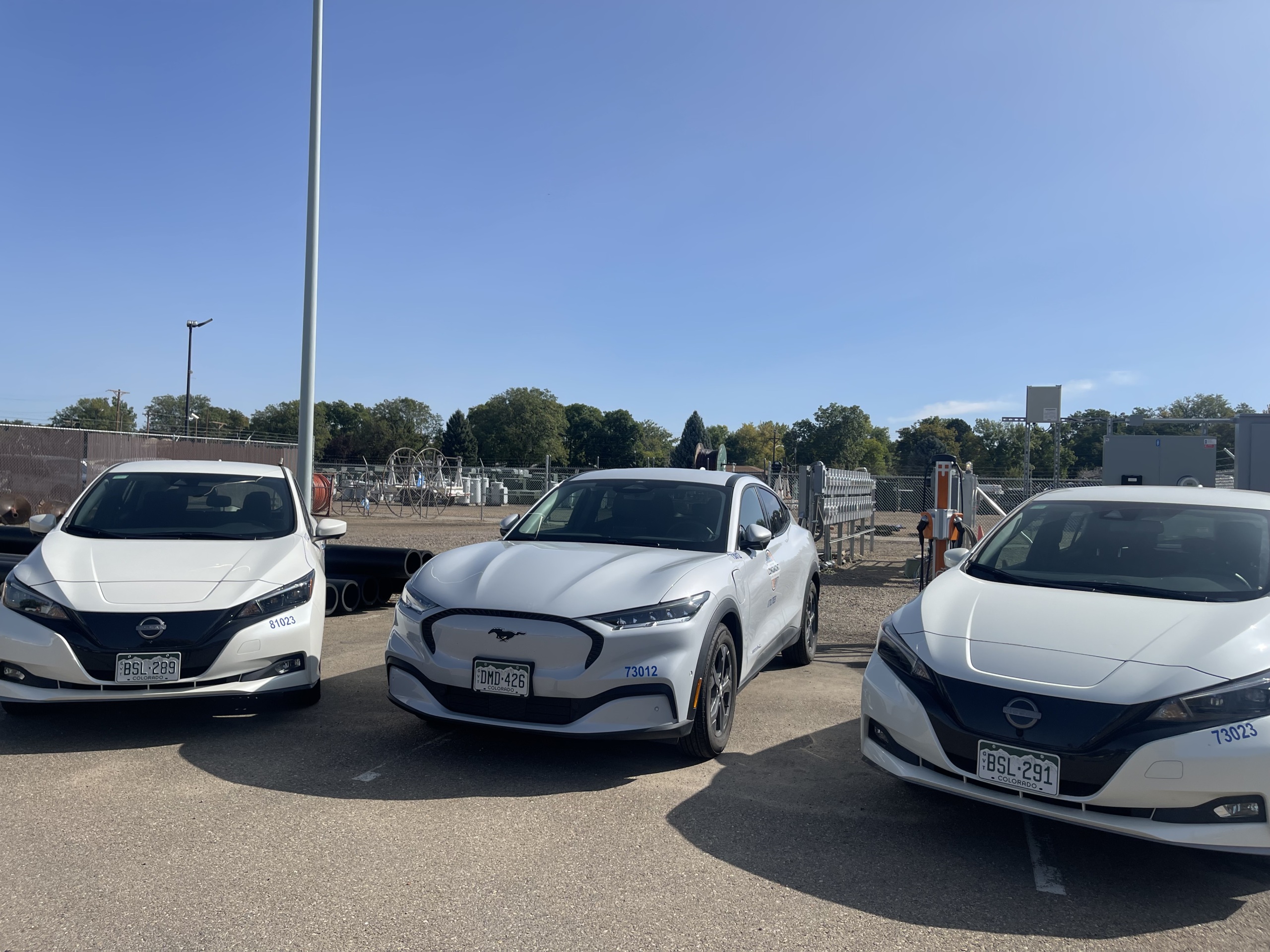
3 of the city's electric vehicles
Photo by Alex Simon | Used by permission
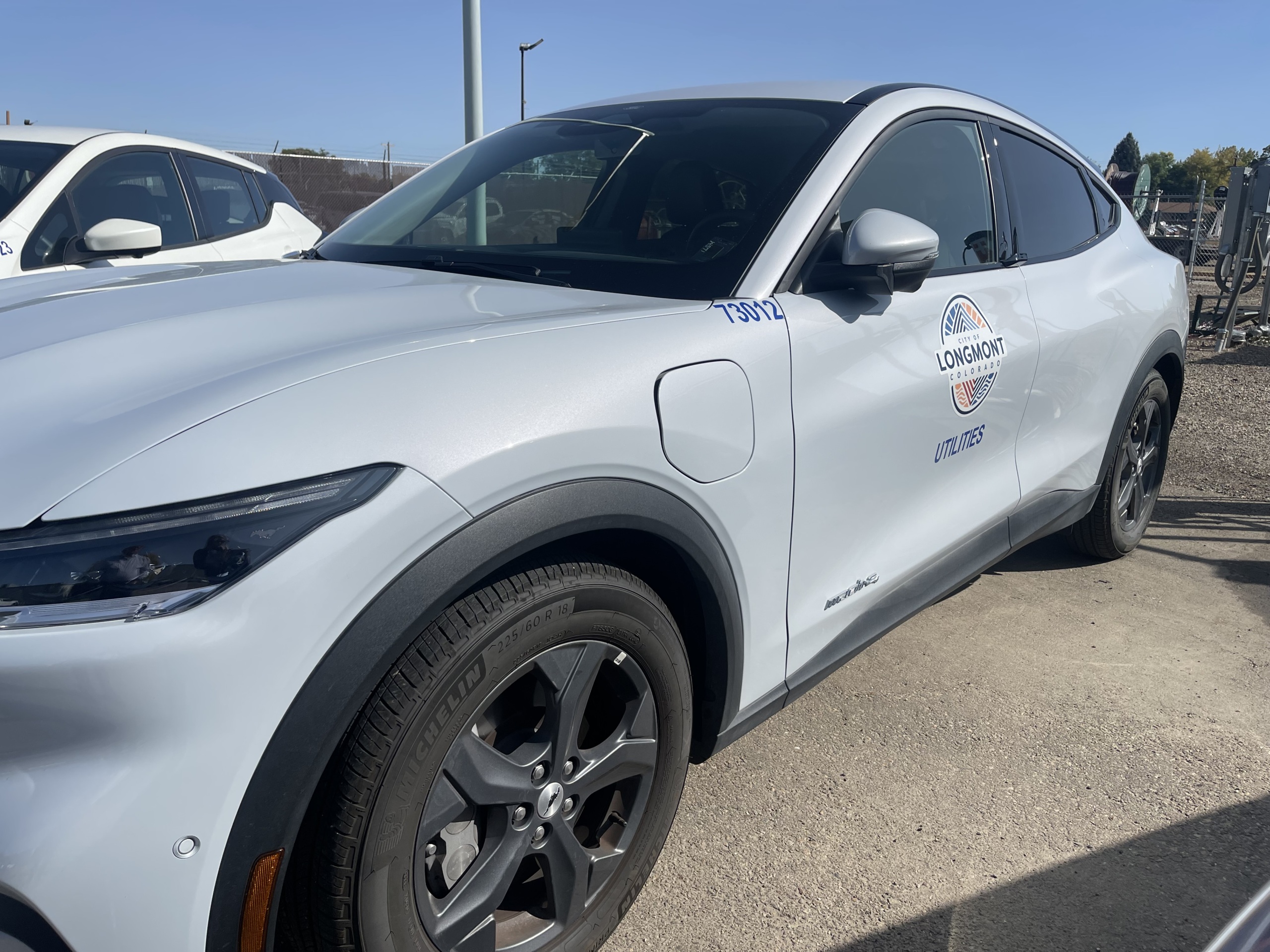
City of Longmont's all-electric Mustang Mach E
Photo by Alex Simon | Used by permission
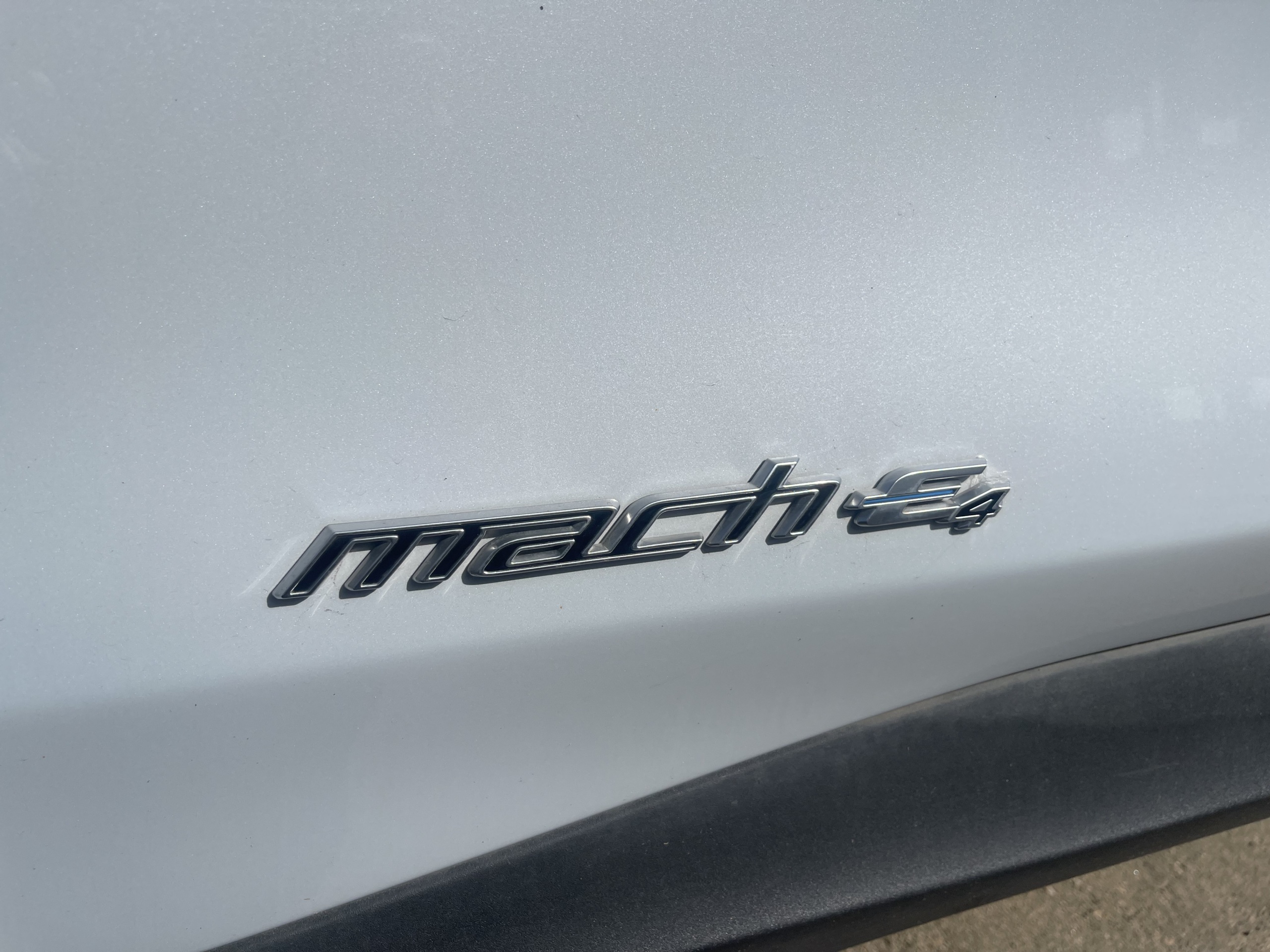
Mustang all-electric Mach E
Photo by Alex Simon | Used by permission
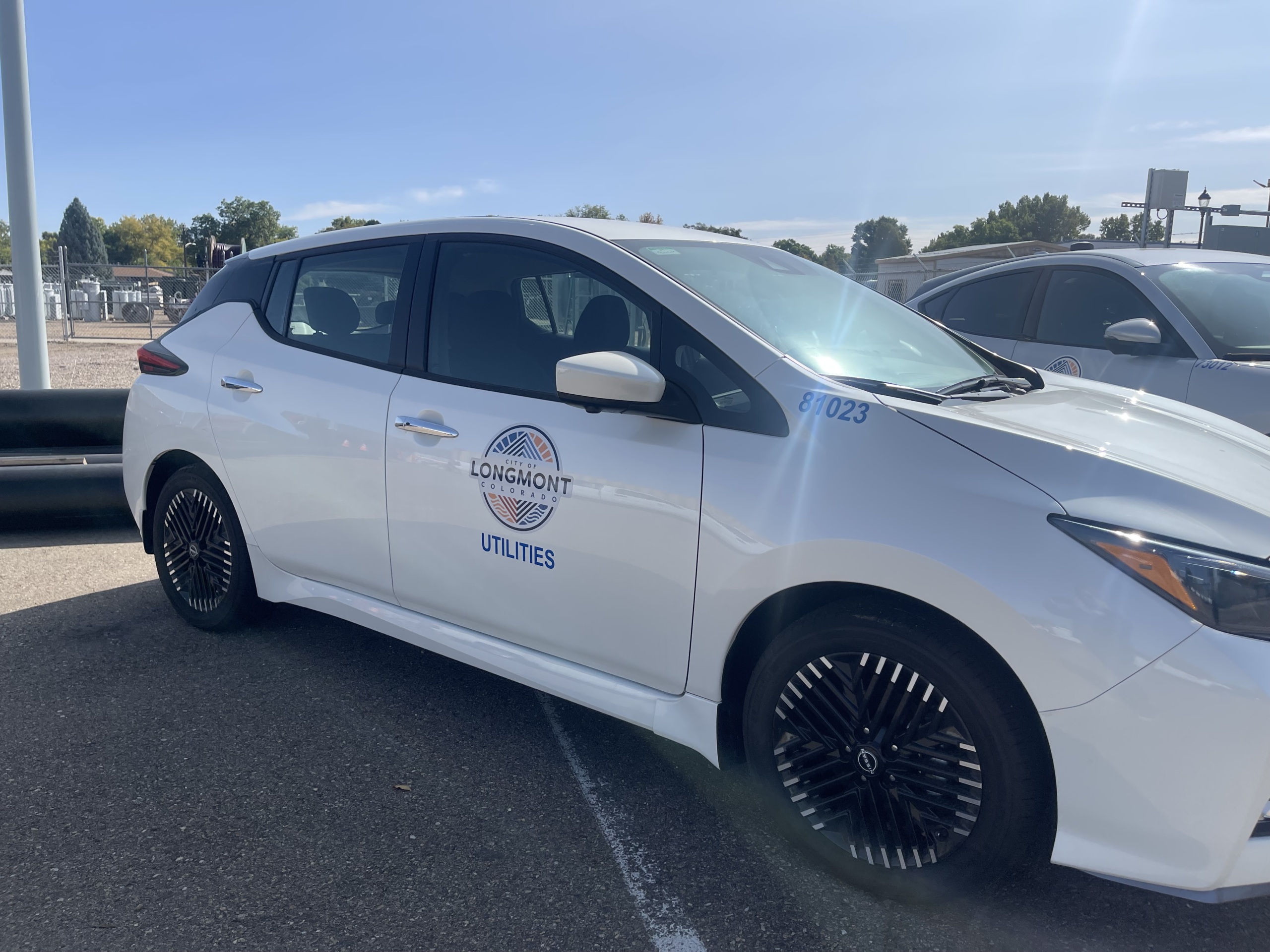
City of Longmont's Nissan Leaf arrived in 2022.
Photo by Alex Simon | Used by permission
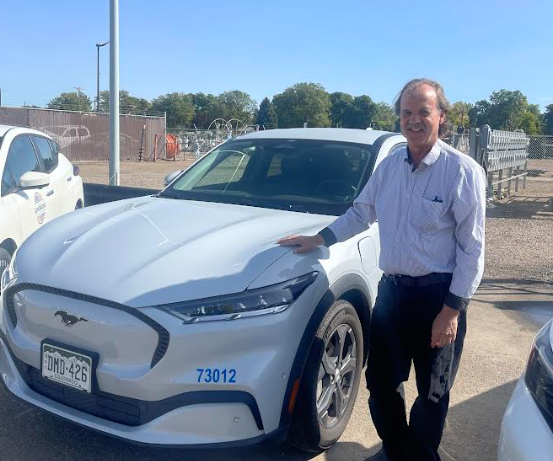
Cash Johns is helping electrify the City of Longmont's fleet.
Photo by Alex Simon | Used by permission
1of 5
Topics
Authors
Alexandra Simon
Public Health Advocate, CoPIRG Foundation
Alex is an advocate on Colorado-based campaigns to promote a healthier, cleaner and safer world. She previously served as the Director of Strategic Planning for The Public Interest Network. Alex lives in Denver, where she enjoys hiking, skiing and seeing live music.
Find Out More

Electric vehicle tax credits, discounts, and rebates in Colorado
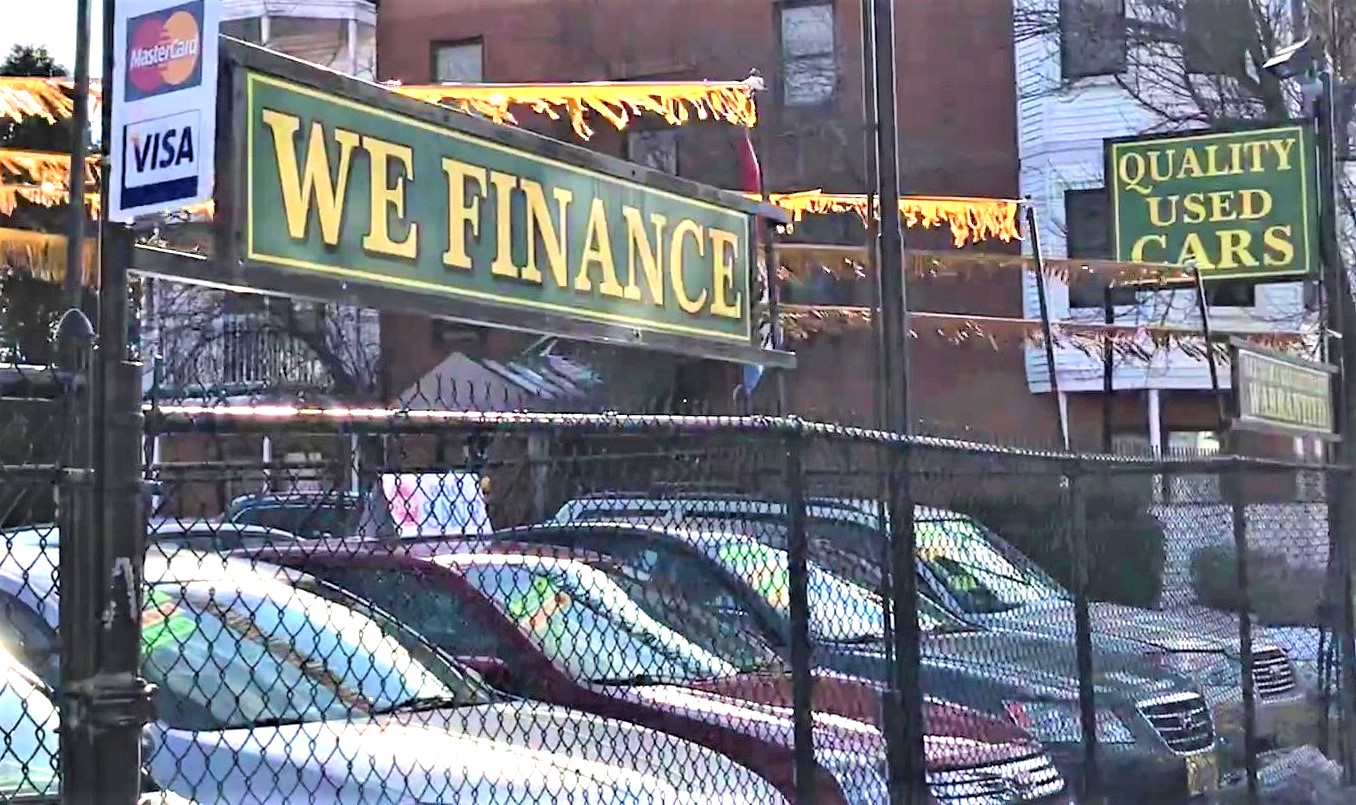
The auto industry has a sustainability problem. And it’s not just about the environment.
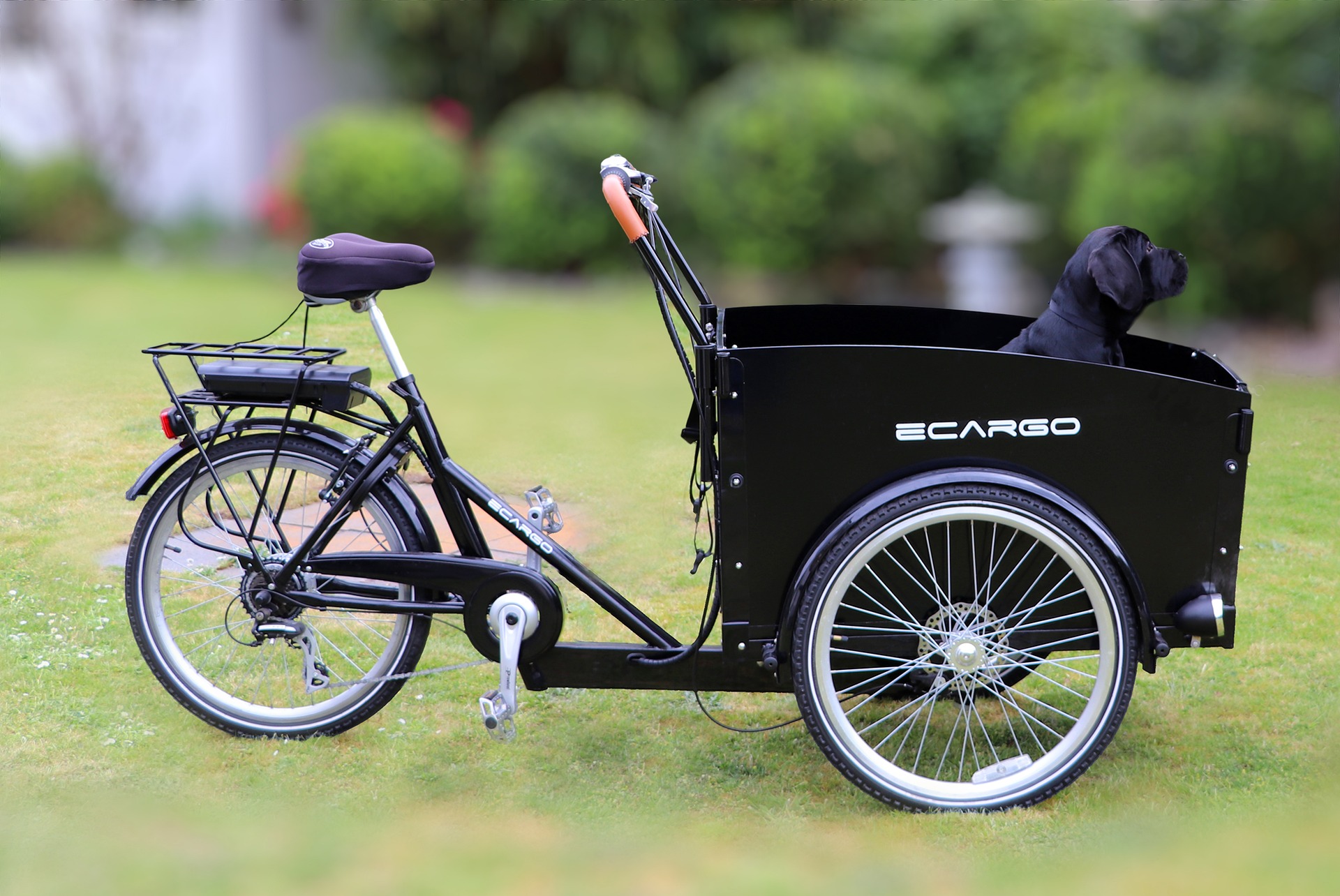
2023 State of E-Bikes in Colorado
